The Art of Writing Wargames in Python Using Kivy
Presented by Dorian Pula / @dorianpula
Prologue
Who am I?
- Software Developer @ Points
- Develop eCommerce platform for Loyalty Programs
- Dockerized Flask REST API microservices
- Open Source
- Rookeries - CMS for developers & designers
- Contributor to Fabric, Ansible & core Python
- Board gamer → Video gamer → Developer
- Apparently too late to the wargaming scene.
- Started programming from copying/porting
Apple 2 Basic games to Microsoft QBasic. - First open source project was a game: justCheckers.
Building a Game in Kivy @ PyCon
- Day 1 - Sprinting on Flask
- Day 2-4 - Kivy Game Camp sprinting.
- Because making a game is more fun, than
submitting PRs for a web framework... - Hosted by Amy & Kjell Woodling from
Leap, Learn, Fly! - Improved Game Camp and Kivy documentation.
- Because making a game is more fun, than
Setting the Board
PyQt / PySide
- PySide / PyQt
- Python bindings for C++ based on Qt framework.
- Powerful screen + widget managements.
- Need C++ experience to effectively use.
- PyOtherside - QML bindings for Python.


PyGTK, Pyglet, PyGame, etc.
-
PyGTK
- Python bindings for C based GTK.
- PyGame
- Bindings for SDL, more low-level.
- Pyglet
- OpenGL based scene-graph library.
- Electron
- Javascript frontend.
- Can use Python backend.
- Tcl
Kivy
- Pythonic!
- Flexible due to OpenGL rendering.
- Event loop is good for games and
interactive apps. - UI layout with declarative KV
(Classic widget + layout container). - Reasonable cross-platform build setup.

Crafting the Game
Kivy Basics
- Standard UI widget / layout based.
- Widgets encapsulate behaviour and look.
- Layout (with nesting) to position widgets.
- Use of KV language to declare the UI.
- Can mix Python and KV.
- Standard event loop to update the screen.
- Nothing drawn outside of the event loop.
KV Example
#:import random random
<Widget>:
canvas.after:
Color:
rgba: 1,1,1,.5
Line:
rectangle: self.x, self.y, self.width, self.height
width: 2
<DebugLabel@Button>:
size: self.parent.size
pos: self.parent.pos
background_color: random.random(), random.random(), random.random(), 0.6
text: 'debuglabel'Pro Tip: Use randomly coloured translucent elements to help with layouts!
Hexagon Layouts
- Standard Layouts:
- Grid
- Box
- Float (free floating absolute positioning)
- No such thing as a Hexagon Grid layout. :(
Gotta build your own. - Lots of math involved:
- Positioning hexes together.
- Adding map positional coordinates.
- Using a cubic coordinates for movement and distance.
- Thankfully Amy & Kjell are mathematicians. :)
Map Building
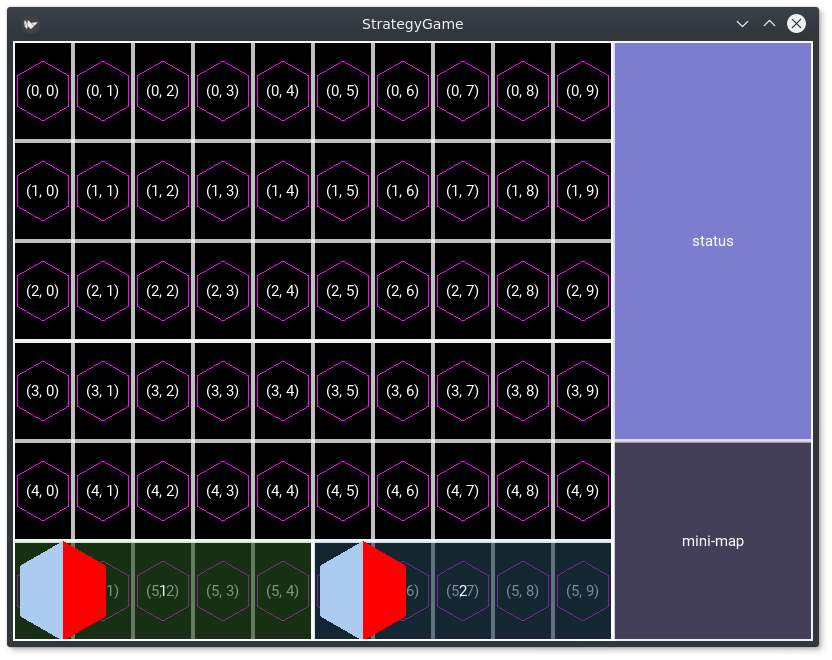
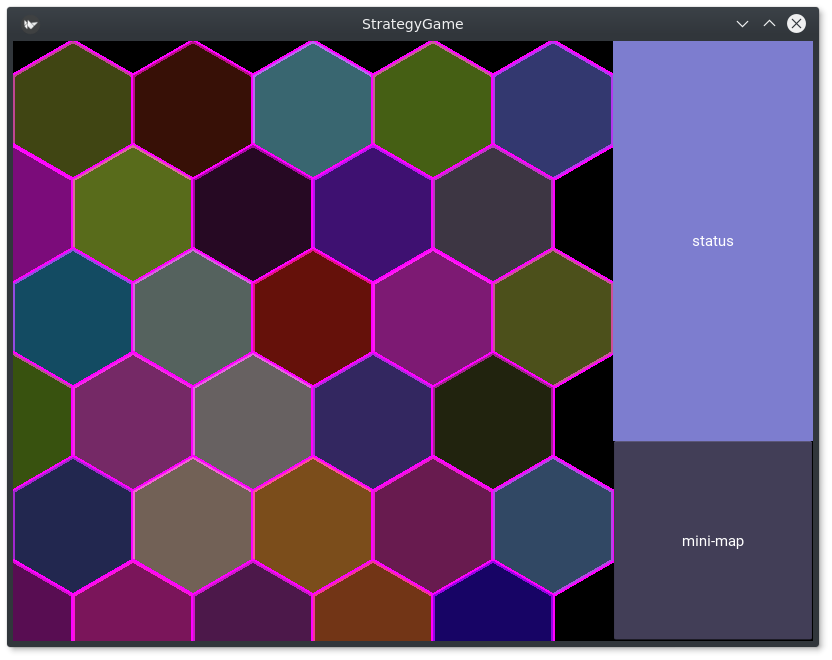
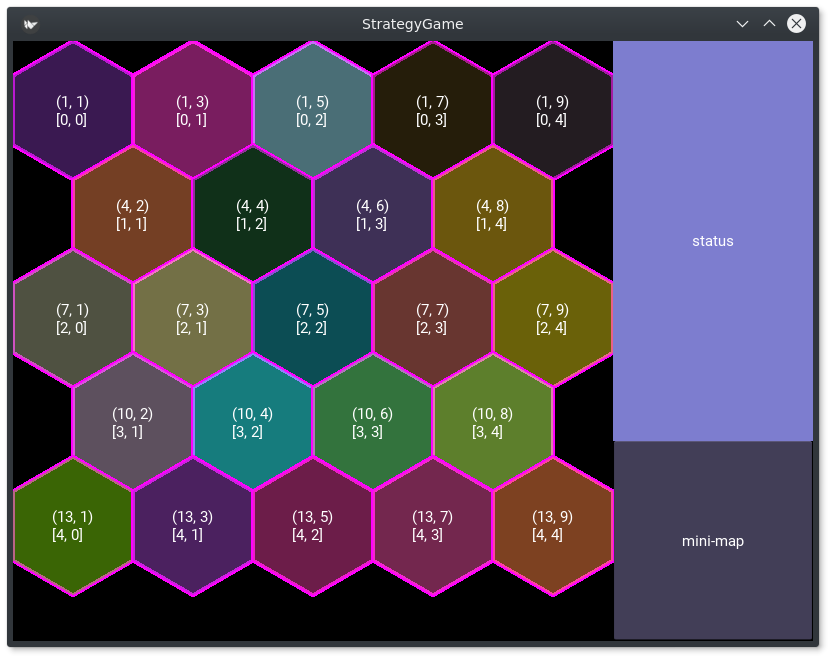
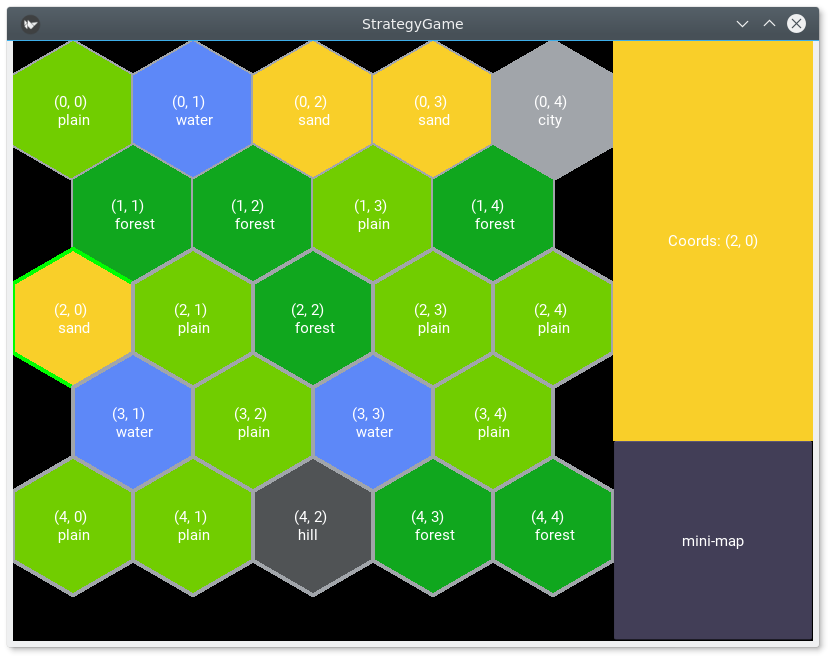
Unit Control via Events
- Having the ability to select and control a unit.
- Give it commands (like move or attack).
- Kivy has a rich input event system:
- Multiple touch events out of the box.
- Each Widget can has hooks for on_EVENT().
- e.g. on_touch_down(), on_pressed()
- Events broadcast from parent to children.
- Can create and use custom events.
Kivy Gotchas
- Three different phases for running painting
instruction on a canvas.- before, during and after initialization.
- Kivy allows for changeable window sizes.
- Need to be aware of positioning in a
dynamic manner.
- Need to be aware of positioning in a
- Events don't propagate unless you return true,
in the event handler method.
Forward Into the World
Targetting Desktops with PyInstaller
- PyInstaller is NOT an installer.
- PyInstaller is a bundler for Python modules
+ libraries.- Single directory mode
- Single binary mode (runnable zip archive)
- Relatively straight forward with "recipes" for Kivy.
- Works for all desktop OS: Windows, Linux, OS X.
How about mobile devices?
- Kivy project: python-for-android
- Deals with bundling of an app into an APK.
- Use Buildozer for building apps:
- Automates lot of the setup and linking.
- Three easy steps:
- buildozer init
- Edit the spec file
- buildozer android debug deploy
- Debug/fix when things break
- Works with iOS and Android.
Building Game Engines +
Map Editors
- Real game devs usually don't build game engines.
- Game engines can be time intensive and complex.
- Standard use of third-party engines.
- Use a entity-component architecture.
- Every on-screen entity is made of a bunch of
self-contained components.
- Every on-screen entity is made of a bunch of
- Use a tile or map editor.
KivEnt + Tiled
-
KivEnt: entity-component game engine for Kivy
- Similar to Unity3d conceptually.
-
Tiled map editor support
- Recent support for hex-based layouts from Tiled in KivEnt
(Thanks to Google Summer of Code contrib)
- Recent support for hex-based layouts from Tiled in KivEnt
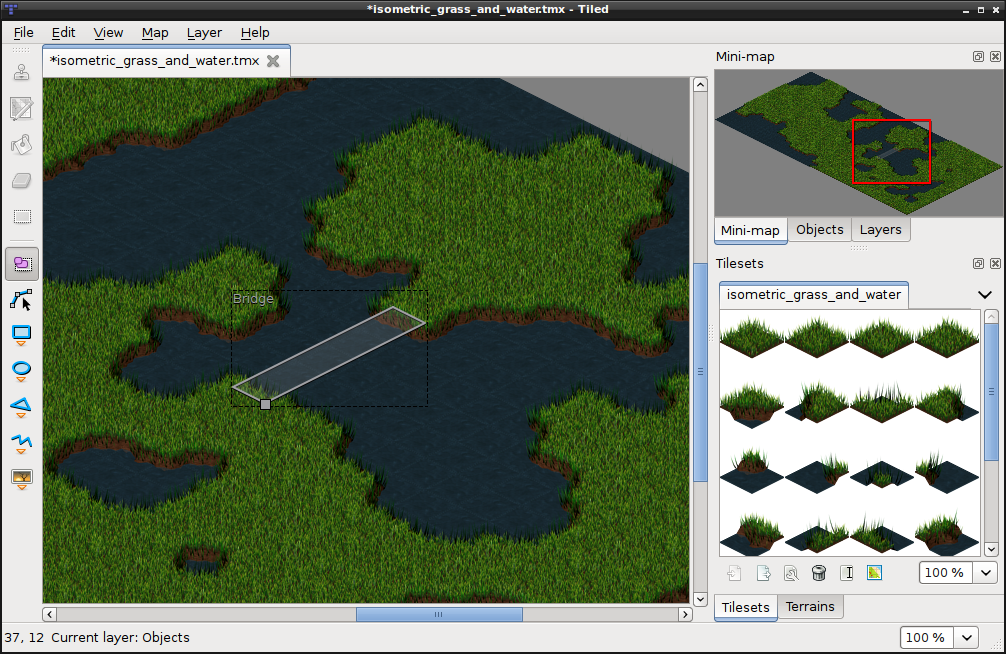
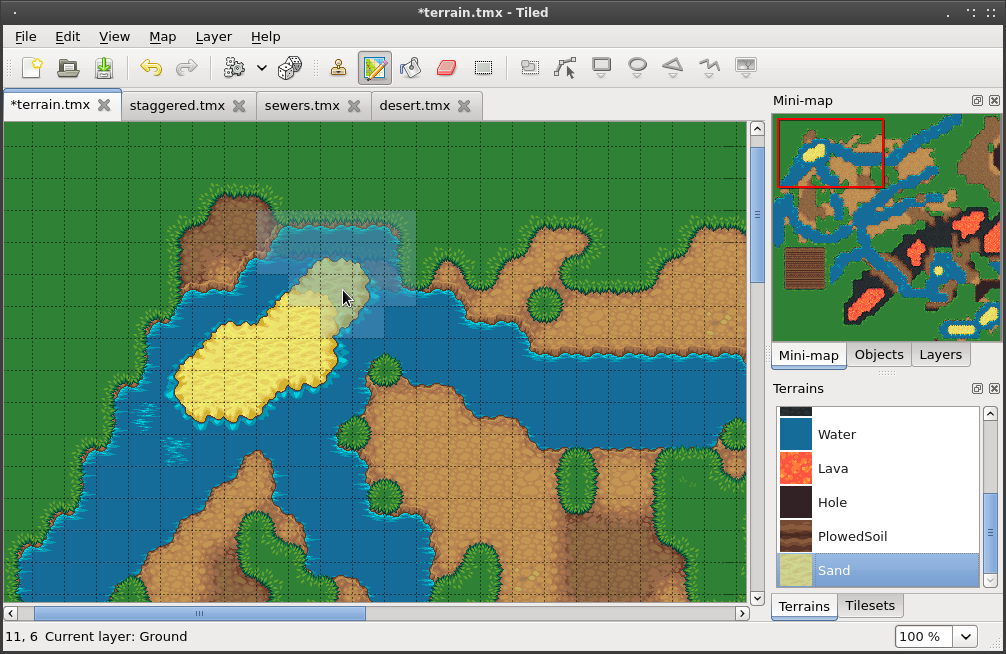
Epilogue
Aftermath
- Kivy makes game development possible and easy.
- App development in general in Python.
- Game dev means lots and lots of math and tweaking.
- Experiment, run, tweak, run, repeat.
- Use KivEnt for more serious game dev.
- Cross-platform app / game development possible
in Python with Kivy.
Thank you!
- Twitter - @dorianpula
- WWW - http://dorianpula.ca/
- Doric game engine:
https://bitbucket.org/dorianpula/doric-engine/ - Kivy: https://kivy.org/
Questions?
The Art of Writing Wargames in Python with Kivy
By Dorian Pula
The Art of Writing Wargames in Python with Kivy
Many of us got our start in programming, by building games and simple apps. However creating interesting games and UIs in Python was not a simple task especially for multiple platforms. Kivy, a cross-platform Python UI app framework changes all that. This talk discusses the journey of working with Kivy to develop a moderately complex strategy game. It also contrasts to using other platforms
- 5,008


